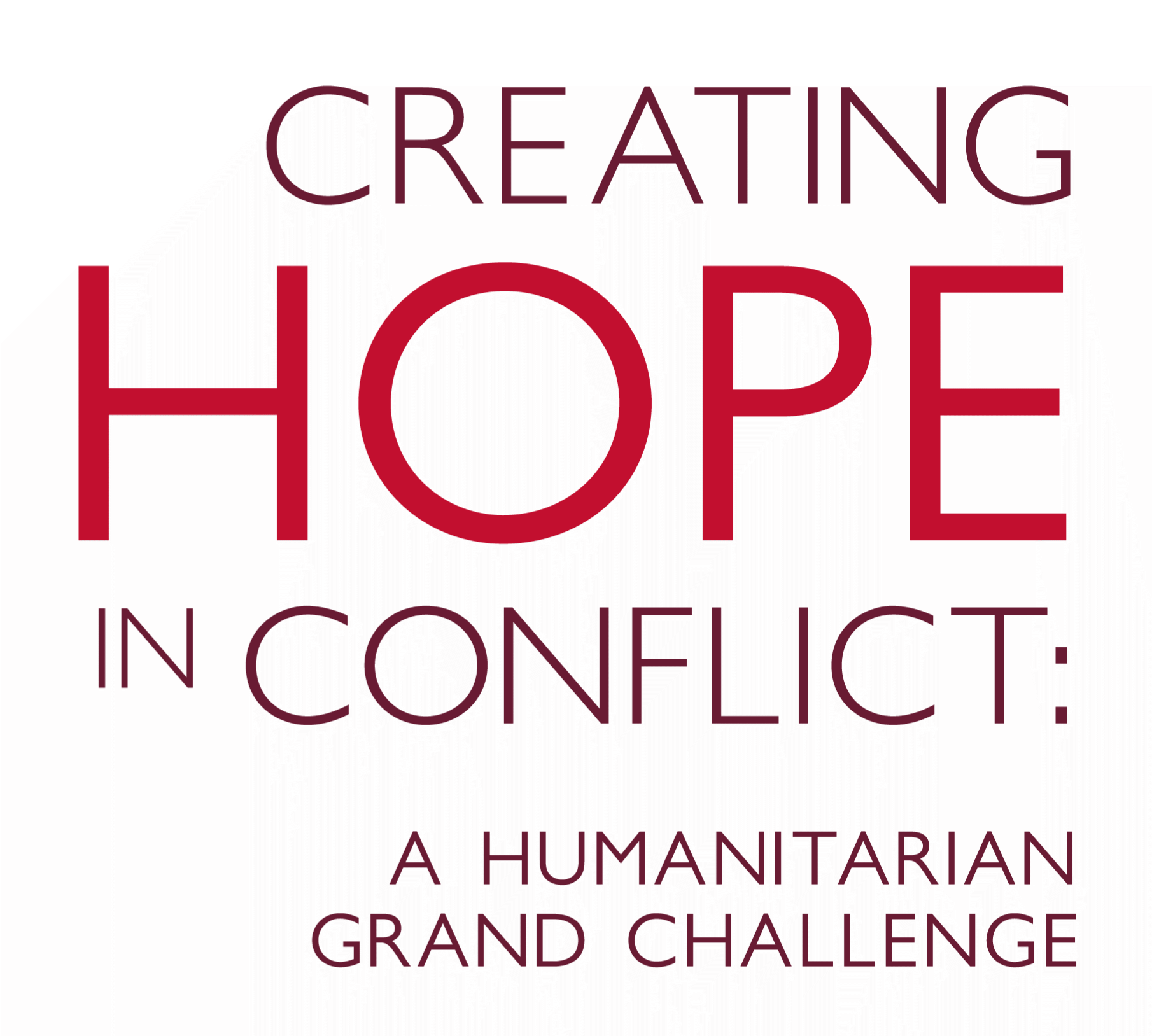Since our inception in 2018, Creating Hope in Conflict: a Humanitarian Grand Challenge has worked around a core hypothesis: It is possible to catalyze innovation by drawing upon resources, technical expertise, and insights from the private sector, and the private sector can play a vital role in humanitarian action by investing in bold and new solutions and supporting innovators’ paths towards scale.
At Humanitarian Networks and Partnerships Week 2023, a group of our innovators and partners came together to reflect on our hypothesis in the context of their work.
Watch the entire video here, and read some of the highlights from the conversation below:
Key Takeaways
Flexible funding is necessary to enable innovation.
Kyle Hamilton, the Senior Manager of Strategy and Partnerships at Nuru, reflected on securing financing in the context of conflict for their clean energy project in DRC:
“It’s very time-consuming and challenging to bring in funding to get projects done at this scale. This is a long-term investment, but if we are going to address a crisis, we need faster capital…[Humanitarian Grand Challenge was] very flexible and willing to help us pivot when we needed to pivot.”
Kat Sellers, the Chief Strategy Officer at Needslist, talked about the limits of the traditional humanitarian sector when seeking support for innovation:
“The nature of applying for grants doesn’t fit innovation in many ways because innovation is about exploring and finding what demand looks like and coming to a conclusion about what it is people need. Generally when you’re applying for a grant, you’re supposed to say if you give us X amount of money you’ll achieve these outcomes, and with a lot of innovations, you don’t know yet. It’s been a real challenge for us to find funding that’s suitable to our sort of innovation.”
Private sector and humanitarian sector goals don’t always intersect; finding synergies to meet the needs of populations in humanitarian contexts is essential for collaboration.
Innovators and partners considered how they navigate finding harmonies between their work in humanitarian contexts and the goals of the private sector.
Washima Mede of Prado Power said, “Engaging with the private sector means telling them the challenges that are faced at the community level and the kinds of things that can bring about significant changes in the lives of residents…[This] provides a clear pathway and you’re able to get them to buy into some of these projects.”
Sherwin Daas, the Managing Director at Energy Peace Partners, shared how their private sector partners haven’t quite the company’s focus on conflict-affected regions, but they still find agreement in their work: “There are other pieces of what we do that align well with their larger global corporate commitments…[Eventually we will] demonstrate that those renewable energy credits have a very quantifiable and measurable peace impact.”
Nan Buzard, the Head of Innovation at the International Committee of the Red Cross, considered some of the challenges with private sector engagement in a humanitarian context: “Now, what does [the] private sector want? They want new markets. That’s how the private sector works, and that’s fine…The key to working with the private sector is understanding what their motivation is and having an honest conversation which is hard because the power imbalance can be very significant.”
Localization is critical to successfully intervening in humanitarian crises. Without structural changes to how the private sector and humanitarian sector function, localization efforts will fall short.
Kat Sellers from Needslist called for big aid agencies and governments to earnestly implement structural changes in access to travel and funding for local organizations in the global majority: “There are really big structural changes that we need to make if we really want as much funding as possible to go to local organizations.”
